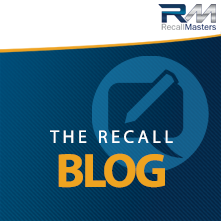Does the Rise in Electric Vehicles Give Birth to a Whole New Set of Recall Problems?
Does the Rise in Electric Vehicles Give Birth to a Whole New Set of Recall Problems?
When it comes to recalls, electric vehicles are pretty new on the scene and have been massively overshadowed by the sheer volume of traditional vehicle recalls. But recent sales and consumer satisfaction data show that it is time to start taking the next evolution of driving seriously.
Let’s not kid ourselves. When electric vehicles were first introduced many industry purists laughed at the idea that electric vehicles would rival their fossil-fuel-burning cousins. After all, the roar of an engine and the smell of exhaust are all part of our nation’s love affair with the four-stroke gasoline engine. However, with a generation of environmentally-conscious consumers that thirst for electric vehicles, and a technology that delivers both efficiency and performance, it’s well within reach to envision a new champion at the finish line.
But the growth of electric vehicles has also garnered new concerns about the increase in recalls that stem from electronics, software and charging technologies.
For example, a Tesla Model S spontaneously caught on fire while being driven in traffic in a very congested area, Santa Monica Blvd, near Los Angeles. The driver was unaware his car was on fire but, luckily, fellow motorists were able to flag him down. He pulled over and was able to safely exit the vehicle before any serious injury occurred. And this isn’t the first time a Tesla has caught fire.
There are additional issues – including accidents and deaths – involving the autopilot feature in these vehicles. The manufacturer, of course, blames human error and negligence, stating that the feature was not meant to be a true “autopilot,” and that it still requires human attention.
Currently, fully electric vehicles (not hybrid electric-gasoline vehicles such as the Toyota Prius) account for just 1.13% of total car sales. However, I am sure you have seen an increasing push from state and federal regulators for stricter emission standards.
California is by far the most stringent and automakers simply manufacture vehicles by that standard to avoid having to manufacture different vehicles for different geographies. An increasing number of states are adopting these same standards (Colorado being the latest). With these emission standards, an increase in mileage-per-charge, and increased availability of charging stations, I am sure we will soon see an increase in production and consumer adoption of electric vehicles.
Tighter regulation is often met by supporting technologies which may not have been fully tested for the lifespan of a vehicle. Are cars and trucks becoming more like computers than machines? We’re at a transition point for sure.
In its State of Recalls Report for 2017, Recall Masters tabulated NHTSA-mandated and manufacture voluntary recalls (see the report here), which offered a glimpse of an industry immersed in electronics and software technologies. In 2017, with a total of total of 89 recalls, Software/Electronics were second only to Airbags (97 recalls). While the total number of vehicles affected ranked fourth highest, it’s a clear signal that the “computerization” of cars is leading to recalls that will affect more and more cars as those technologies make their way into standard product offerings.
Think about it. How often does your phone, laptop or computer give you problems or experience glitches? What if you were driving your electronic device at 80 mph on the highway when one of these hiccups occurred? While this is a sobering thought, we should not fear progress. Without a doubt, consumers are much safer in the cars of today than in those of the past. Safety is still a central theme for both the manufacturer and industry regulators. The point here is to recognize that none of these advancements can be adopted without attention to detail and the wear and tear that the average driver places on their car or truck.
It would be prudent to begin solving issues that come up with the repair of electric vehicles now, rather than wait for mass adoption and an increase in recalls and exploding vehicles. This way you can gain a competitive edge and not be left behind.
In the end, all vehicles should be safe to drive and for other motorists to drive alongside.

